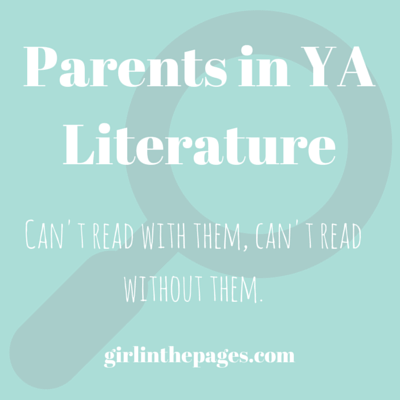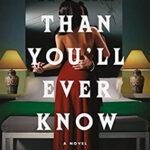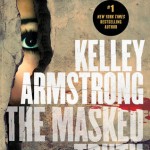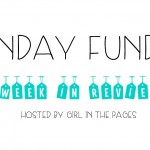If you’re a long time reader of YA, you know the gripe: readers constantly complaining that the parents are never involved, too conveniently absent, or just nonexistent, period. However, I think there’s been a recent shift in the role of parents (at least in contemporary YA) where authors may be overcompensating by making parents who are TOO overbearing. A balance is nice and definitely makes for good family dynamics, but I find that this “helicopter parenting” in books, while sometimes part of the plot, tends to overwhelm the book as much as a lack of parental authority can.
Some recent contemporaries I’ve picked up have featured such overbearing parents, and it really got me thinking about family dynamics and the roles of parents, and in what situations DO I enjoy reading about parent-child interactions.
M.I.A. Parents
Gossip Girl by Cecily Von Ziegesar: The parents aren’t just absentee, they’ve often enablers, emotionally and financially, to the shenanigans and self destructive behavior of their offspring.
Wolves of Mercy Falls Trilogy by Maggie Stiefvater: While they try to overcompensate later on, Grace’s parents are laughably absent-minded, and her personality as the “adult” of the family borders on absurd. The fact that they all of the sudden try to enforce their parental authority after things happen if even more irritating and excruciating to read because of it.
Helicopter Parents
Saint Anything by Sarah Dessen: Sydney’s mother is the epitomen of controlling. While she has reason to worry due to her firstborn’s out of control antics, it becomes a classic case of her exerting her authority on her younger, well behaved child just because she can. This sort of “preemptive parenting” is no doubt a real thing, but it started to overtake the plot of the novel at times, and the amount of control Sydney allows her mother to give her become tedious and frustrating to read.
Emmy & Oliver by Robin Benway: Emmy suffers from two overprotective parents, who veered into paranoia when the boy next door was kidnapped. Their reasoning seemed a little flimsy (he was kidnapped by a parent as a result of a domestic dispute, it wasn’t a random occurrence) and it seemed over the top that Emmy is seventeen and her parents still dictate her bedtime every night. Emmy, however, showed more agency than other protagonists in similar situations and did what most teenagers are apt to do: carry on her illicit activities (surfing) in secret while struggling to find a way to bring her parents into her life.
A Good Balance?
Angelfall by Susan Ee: Though set in post-apocolypctic Northern California and dealing with supernatural beings, Ee managed to portray a well-balanced mother-daughter relationship, if an unorthodox one. Penryn’s mother is a schizophrenic, running unchecked after the apocalypse, without access to medications, doctors, etc. She’s violent and resourceful, a dangerous enemy and surprisingly awesome ally. She has a history of allowing her mental illness to dictate her actions toward her children, sometimes with horrific consequences. Yet she thrives in the chaos of dystopia, and lets Penryn do her heroine thing while swooping in when and where she can when her daughters need her. She doesn’t shelter them from the gore and horror of survival, and perhaps pushes them to their emotional limits, but she keeps them alive, and she allows them to fight and defend themselves rather than stunting their survival with coddling or indifference.
Fangirl by Rainbow Rowell: Cath and Wren deal with both ends of the parenting spectrum in the novel. Their dad is dependable, supportive, and present-enough in phone calls, emergencies, and holidays as can be expected once kids go off to college. Their mother, however, left them to start a new family, a new life, and though starts to become a semi-presence in their lives again, ultimately fails being their emotionally for them. This polarized approach to parenting between divorced parents is great because it depicts the hard truth that relationships with parents aren’t homogenous, and a child’s relationship with each parent as an individual can vary wildly. Too often parents are lumped together as a single unit in YA, not seen for the extremely influential individuals that they are.
Thoughts
Of course, there are always exceptions to these situations. Sometimes absentee parents are part of the growth and character development in books, such as Making Pretty by Corey Ann Haydu, where Montana’s father’s constant dating and mother’s abandonment set the foundations for her teenage self-exploration. Mia from The Princess Diaries grew up extremely close with her mother as one of her best and only friends, and grew to have great morals and principles because of it. All families truly are different, and so all YA families should reasonably be as well. However, the stereotype of the absent YA parent seems like it may be countered too aggressively with helicopter parents who cannot disentangle their lives from their children’s, and in some ways it’s equally frustrating to read because it can stunt character growth or overtake the larger plot of the novel.
I’m not here to complain (I grew up with very overprotective parents myself) or to celebrate the convenient absence of parents for the sake of plot. Rather I would love to see more varied parental dynamics within families, with the character developing more adult relationships with each parent as an individual (rather than them being a fused-together unit where too often Mom calls the shots and Dad just nods along compliantly-which opens a whole different discussion about gender roles…). In the YA age group characters can range from pre-teens to early twenties, and parent-child relationships change a lot during this time period, so variety in such relationships among different age groups would be a great thing to see as well. Finally, it’s fascinating to examine how authors are choosing to write parents across different genres, and how such genres influence (or perhaps don’t change at all) parent-child dynamics. No matter the age group, setting, or level of involvement, parents play a crucial dynamic in YA literature, whether by their presence or absence.
Let’s Chat!
Has this current phenomena with more “helicopter parents” been noticed by anyone else? Do you like it because it makes up for the YA stereotype of conveniently absent parenting, or is it a sub-plot you don’t enjoy reading? What are good books where you found either a good balance between parent-child relationships or a lot of variety in such relationships? Do parents even matter to you when you read YA, or do you prefer when characters are conveniently orphans? (We’ve all been there). Do you have different expectations for family relationships and dynamics depending on what genre/sub-genre you read? Let me know in the comments!










Very interesting post! Personally I think parents must be very difficult to write in YA, particularly in YA that isn’t contemporary. Some of my favourite YA parents are Kat and Denny from If I Stay; I think the two of them are wonderful, and so much fun. However, so much YA stories involve protagonists having to do something we would never have to do or being in a situation that we would never find ourselves in, and I imagine it’s quite difficult to write parents for characters like that.
I think the best example I can think of off the top of my head is Katniss, who is forced to be the parent of her little family after the death of her father sends her mother over the edge. It’s hard to imagine someone like Katniss having a bedtime or being told what she can and can’t do, which I think is partly why she has one dead parent and one who’s too mentally unstable to be an efficient caregiver.
It would be nice to see more well-rounded parents in YA, though. Personally I love the idea of a teenager saving the world in an epic fantasy story, only to then be grounded by their parents for staying out too late. I’d love to see that!
Oh, I haven’t read If I Stay yet but I did love them in the movie (would you say the portrayal of them was similar to the book?) Right, I’d love to see some family boundaries in sweeping fantasies or high stakes dystoian, because those support systems can still exist even in extreme circumstances!
Your post is extremely timely for me. I am currently listening to Dash and Lily’s Book of Dares. It’s the first time absent parents has really bothered me. Perhaps because the book takes place at Christmas time.
I agree that authors need to do a better job of portraying realistic balanced parents. I don’t agree with the notion that all teens hate their parents, so I really hate when parents are portrayed as stupid or over controlling and teens as being right all the time.
It’s the same way with TV shows for teens. Are there not enough good parents out there for writers to base characters on? I don’t believe that, but why is it so hard to write a good parental role model?!
TV shows are rampant with the absentee parent problem. I think it’s more because of plot (parents being gone means teens can much more easily engage in shenanigans/fight demons/through lavish parties/save the world/etc.) but at the same time I always find myself rolling my eyes when the stubborn headed teenager is “always right.” Adolescence is a growing experience and I think family dynamics are such an important part of that, so I wish parents played more of a role!
I just kind of touched on this in my review of Emmy & Oliver! I too am seeing a shift in YA novels in the sense that there are actually parents present! Even though at times missing parents make sense, a lot of times they are missing and it makes no sense. Just recently parents have been around, but like you said, a good amount of them are being overly protective. However, in some cases that makes sense to me and at least there is a mentioning parents since parents and family alike do play a huge role in a teenagers life one way or another. So I guess to answer your question I do like it when they are present in YA novels. I’m trying to think of any good and present parents in YA off the top of my head and I’m not sure I can. I think the ones in Kasie West’s novel On the Fence? Anyway, this is something I should note on my sticky note for review because now I am curious.
Great discussion post! Sorry my response is long and rambly.
I love long responses! 🙂
I actually recently bought on the fence so I will definitely be looking at the family dynamics in it! I think parents are starting to play a larger role in contemporaries recently, and that perhaps authors are still trying to find that balance since it is, funnily enough, somewhat uncharted territory.
Do you think the surge (for lack of a better term) in “helicopter parents” are something limited to contemporary books? I don’t read too many contemporary novels, so I haven’t noticed this. I always feel that parents are so uncommon, I’m just thankful when they do show up. When I think of a really good parental example in children’s/YA literature, the first ones that come to mind are Molly and Arthur Weasley. Some other great parent-child dynamic relations I like: Blue and Maura in the Raven Cycle series, Audrey and Lucy from the Dark Star series by Bethany Frenette, Meggie and Mo from the Inkworld trilogy. I’m definitely more forgiving of absent parents while reading fantasy as opposed to contemporary books.
I think you’re right and it is more prevalent in contemporary, since parents-children dynamics seem to be so rare (comparatively) in paranormal/fantasy/dystopian. Harry Potter is a GREAT resource to pull from when looking at parent-child dynamics since there are SO many different types of families there (even down to abusive parenting, such as Harry and the Durselys and Draco and his parents to an extent)
I feel like I have read more books with involved parents and better family relationships. That said overall it is definitely a mixed bag in the books which is probably more accurate. I mean there are so many types of parents and family structures in real life there should be books reflecting them all.
Exactly! It would be nice to see some diversity in family structure and how that effects the character.
It’s interesting: I find in recent New Adult novels you have more “absent” parents than “helicopter” parents whereas it is the reverse in the contemporary YA novels I’m reading. Perhaps a sign of the shift of generations for each target audience?
I don’t mind parental relationships in my novels. I think they help make the characters more approachable and realistic to readers (especially young adults). We can all relate to some level and in some way so I see its uses.
Where I find it annoying is when characters use their relationship with their parents as an excuse to do stupid things repeatedly. I know it’s all an aspect of growing up and I’ve definitely improved my tolerance for reading stories where I don’t mesh personality wise with the lead. I just struggle with bratty characters. Grace from Wolves of Mercy Falls is a great example of a heroine I couldn’t stand because of the relationship she has with her parents and the actions she chooses to do because of it.
I can think of one subversion. I’m reading After by Anna Todd (which was the One Direction fanfiction) and it is basically NA and the mom is actually a helicopter parent.
Oh ya, there are always helicopter parents in NA! A few of my favourites have helicopter parents (Out of Line, The List, etc.). I think I just read darker NA stuff so they seem to go with the dramatics of having an absent parent 😛
I’ve barely read any NA but I think that’s an interesting comparison! (Perhaps because at the NA age group parents are less “involved”? Again though, that will really vary from family to family!) YES I totally agree with you about kids using their parents as an excuse to do stupid things, in that sort of rebellious/I’ll show you way. Grace is a great example of that, though I did sympathize with her since her parents went from absentee to helicopter parents in record time!
One of my favorite writers for parents is A.S. King, she makes them a natural part of the story and gives them their own backgrounds too. I also really liked the relationship between Cath and her Dad in Fangirl. Jerk Dad seems real popular.
Oh, I just picked up my first A.S. King novel at ALA (I Crawl Through It) so I’m excited to see the way she handles writing parents now!
[…] Parents In Ya Literature Cant Read With Them Cant Read Without Them […]
[…] Cristina talks about parents in YA literature. […]
[…] Christina @ Girl in the Pages talked about types of parents in literature […]
[…] Dead in Fiction? (Shannon Thompson) [3] Disappearing Parent Syndrome (Delicate Eternity) [4] Parents in YA Literature: Can’t Read With Them, Can’t Read Without Them (Girl in the Pages) [5] Parents in YA — Love ‘Em or Hate ‘Em? (Emily Ross Writes) [6] Why are […]